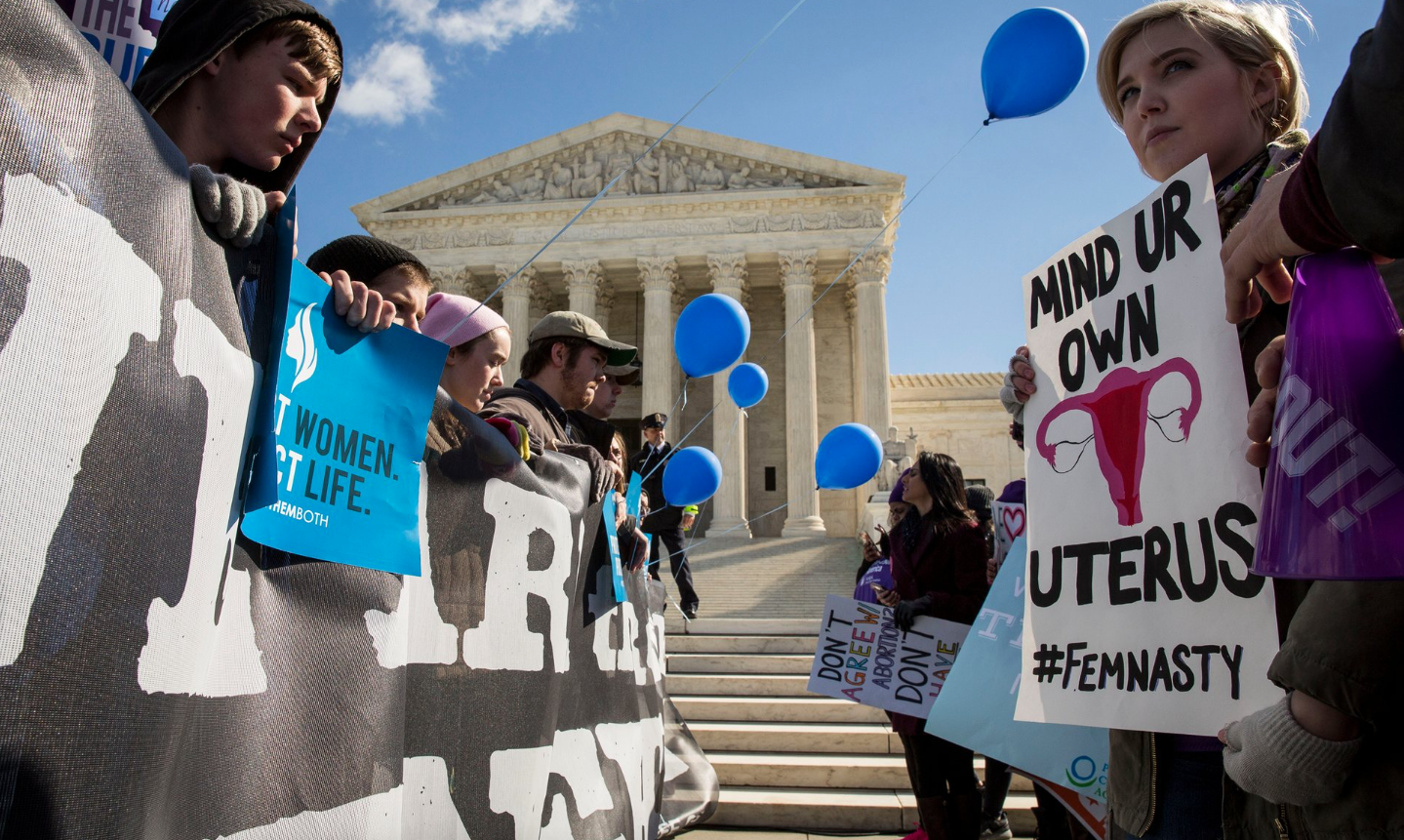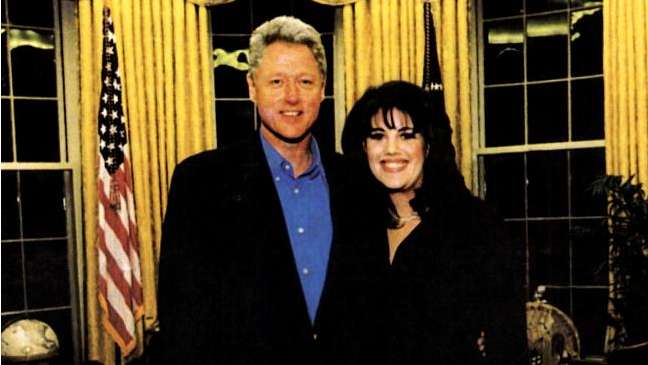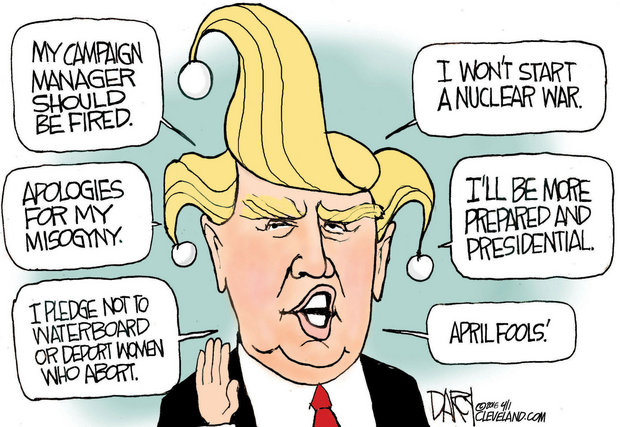In God We Trust... With Abortion Laws?

This year’s race for the White House has been a chaotic spectacle. While candidates on both ends of the political spectrum battle it out, one viral Facebook meme describes the election as ‘picking the STD that you’d most like to have’.
Against that backdrop, one issue that has taken center stage is abortion. Politicians on both sides can't stop debating it. The abortion debate highlights, yet again, how deeply religion is embedded in American politics — even though the United States claims to be secular. The first amendment of the Constitution, remember, “forbids Congress from both promoting one religion over others.” Yet American politicians can’t seem to get elected unless they publicly avow their faith in God. Even Hillary Clinton named the Bible as her favorite book.
Abortion is one of those issues that, more than forty years after the Roe v. Wade judicial ruling in 1973 legalizing abortion nationwide, never goes away in America. Unlike in France, a genuinely secular republic, in America politicians can’t seem to let go. In America abortion continues to incite passions, for and against, the latter driven by deeply-rooted Christian morality transformed into political discourse. The United States is among the countries – Ireland and Poland are two others – that still furiously debates abortion due to the influence of religion. On the abortion issue, France and the United States are studies in contrast.
France was traditionally a Catholic country, often ruled by cardinals such as Richelieu and Mazarin. Before the French Revolution of 1789, Roman Catholicism was the nation’s official state religion. The Revolution marked a violent rupture with Church power, despite Napoleon’s attempt to reinstate Catholicism as France’s state religion. By the end of the 19th century, notably under the Third Republic, efforts were made to remove the Church and its doctrines from politics. Finally, in 1905 a French law eradicated religion’s presence in the state and enforced secularization. Religion was pushed to the margins of French society, where it largely remains today. As religion found itself increasingly marginalized from political debate, so did the abortion issue. Simone Veil, France’s former minister of health, legalized abortion under the Veil Law of 1975. Since then, abortion is rarely mentioned in French political debate, except on the far right where conservative nationalists and Catholics make common cause.
The situation in America is strikingly different. Since the Roe v. Wade ruling (at roughly the same time as France's Veil Law in the 1970s), abortion has remained a tinderbox issue in American politics. Perhaps it can be explained, more generally, by America's Puritanical culture. Whereas the French have a relatively relaxed attitude about anything to do with sex —and keep it separate in the political sphere — in America sex and sin are always at the center of scandals. Where better to look than Presidential infidelities?

Bill Clinton and White House intern Monica Lewinsky in the Oval Office.
Remember Monica Lewinsky? Nearly twenty years after the scandal over her sexual antics with Bill Clinton in the White House, she is giving Ted Talks and has written books about the fallout from her infamous affair. She talks about the burden of shame that she has carried since the scandal made her a household name in America. In a recent interview, she confided that "the shame sticks to you like tar".
Remember Julie Gayet? She had an affair with French President Hollande a mere two years ago, yet it’s already old news. After a brief flurry of tabloid magazine stories, the French grew bored. Today Hollande and Gayet are a couple, though few in France give much notice. Imagine if a President of the United States invited his mistress to move into the White House — living in sin?
Perhaps the reason America is still obsessed with Monica Lewinsky is precisely the Puritanical notion of ‘sin’. Americans feel comforted in knowing that their President pledges allegiance to religion. The Pledge of Allegiance does not let us forget that America is a nation "under God" and its official motto is "In God We Trust". Faith in God in turn is supposed to demonstrate strong ethics and a sense of purity. When this is violated, politicians are no longer seen as pure. They have sinned, and must atone accordingly. So much for a secular republic.

Now let's return to abortion. It's an issue that constantly gets drawn into debate where views are shaped by deeply rooted values based on religious faith. Sometimes politicians will even change their position on abortion to tap into the pervasive culture of Puritanism. In 1999, Donald Trump — from liberal-minded New York — was overtly pro-choice. When considering running for President in 2000, Trump stated that he would never ban abortion. Today he has a very different position. Now the Republican front-runner supported by ultra-conservative voters, he recently stated that woman seeking an abortion should be punished by law.
Trump is known for changing his views, but the reality is that, as a Republican candidate, he simply cannot be pro-abortion. Religion is so deeply rooted in the Republican Party that he would not stand a chance winning the party's nomination. One might wonder if a self-declared atheist could ever get elected President of the United States. In a secular republic, this shouldn't be a controversial question. And yet in America it is. In fact, in seven states — Maryland, Arkansas, Mississippi, North Carolina, South Carolina, Texas, and Tennessee — it’s still illegal for an atheist to run for public office.
Banning atheists from public office is not only absurdly outdated, it constitutes a threat to abortion rights because pro-life politicians use religion to justify their stance. If atheists are not allowed to run for public office, the elected representation of pro-choice voters is skewed. Pro-life voters have a political voice; pro-choice voters do not.

Let's face it, the real problem is the overwhelming place of religion in American politics. The United States needs to learn some fundamental lessons from France, a secular republic that keeps religion and politics separate. In France, God does not make laws.





